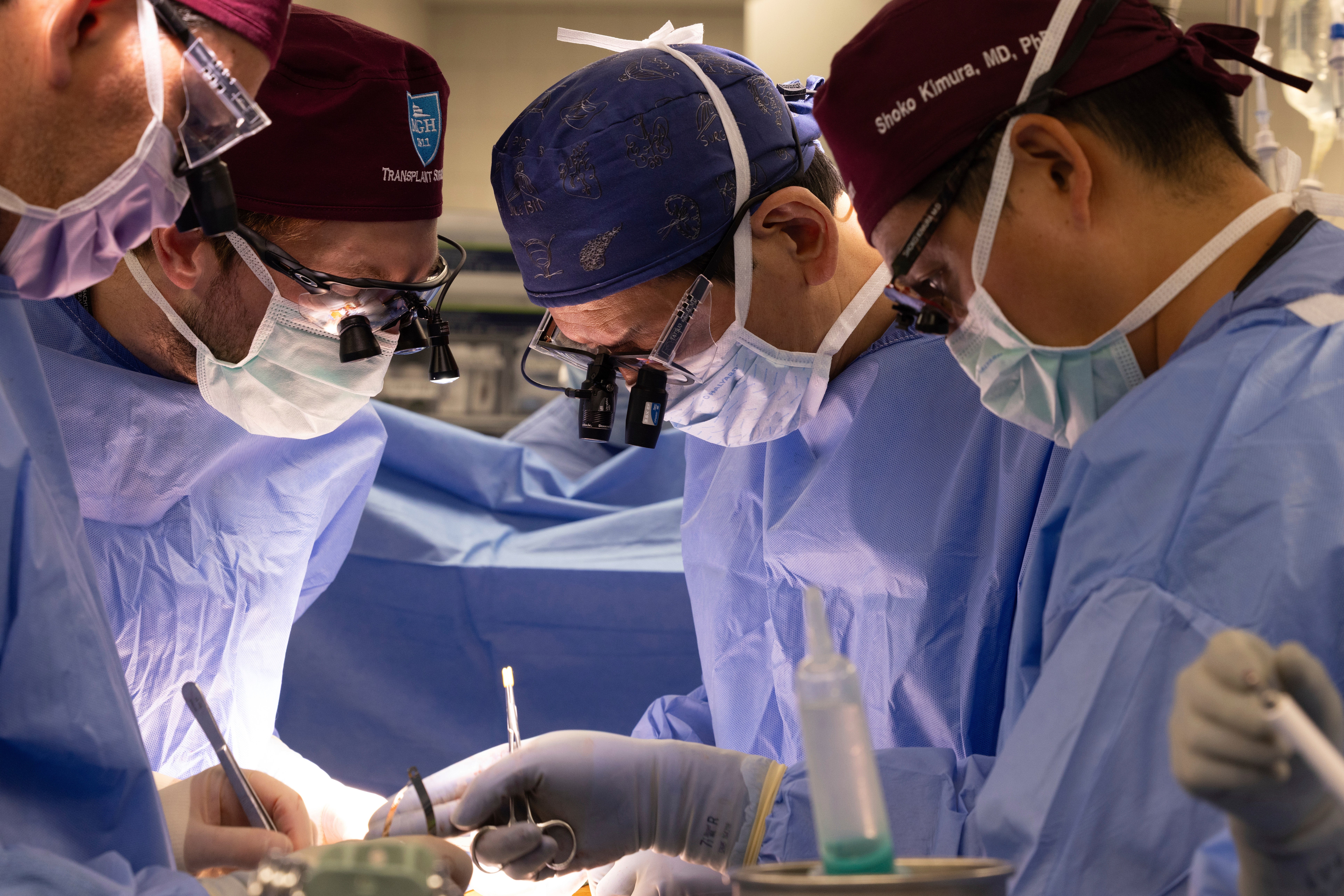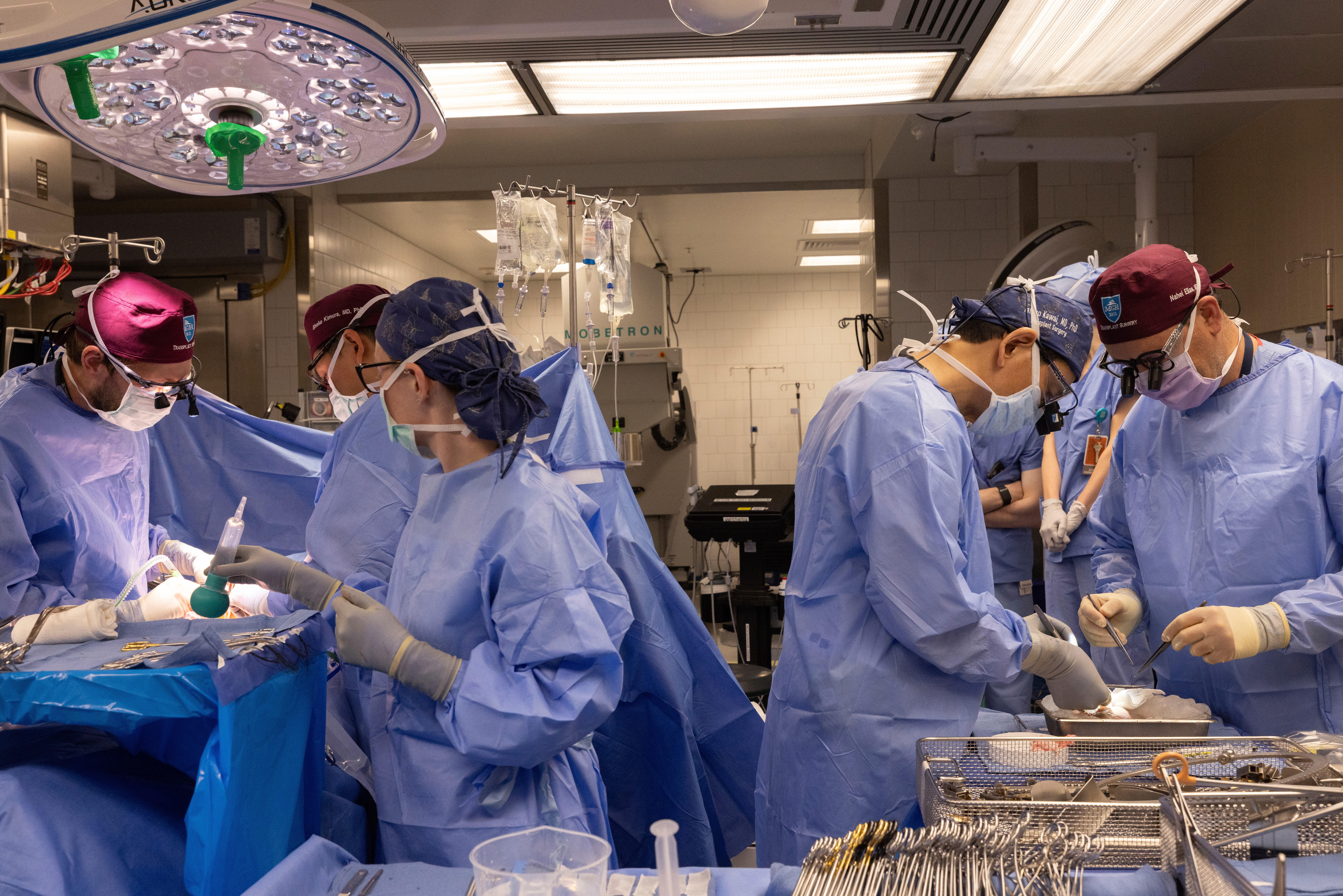
A self-described 'science nerd' is the latest American to receive an experimental pig kidney transplant, at a crucial point in the quest to prove if animal organs might truly save human lives.
Bill Stewart, an athletic trainer from Dover, New Hampshire, is faring well after his 14 June operation, doctors at Massachusetts General Hospital announced on Monday.
"I really wanted to contribute to the science of it," the 54-year-old man told The Associated Press.
This follows a significant milestone for the Mass General team: another New Hampshire man, Tim Andrews, has been kept off dialysis for a record seven months and counting thanks to a pig kidney.
Until now, the longest a gene-edited pig organ transplant was known to last was 130 days.
Based on lessons from the New Hampshire men and a handful of other experimental attempts, the Food and Drug Administration approved pig producer eGenesis to begin a rigorous study of kidney xenotransplants.
"Right now we have a bottleneck" in finding enough human organs, said Mass General kidney specialist Dr Leonardo Riella, who will help lead the new clinical trial.

More than 100,000 people are on the US transplant list, most who need a kidney, and thousands die waiting. As an alternative, scientists are genetically altering pigs so their organs are more humanlike, less likely to be immediately attacked and destroyed by people’s immune system.
Initial experiments, two hearts and two kidneys, were short-lived and included very ill patients.
Chinese researchers also recently announced a kidney xenotransplant but released little information. Then, an Alabama woman whose pig kidney lasted 130 days before rejection prompted its removal, sending her back to dialysis, helped researchers shift to not-as-sick patients.
In New Hampshire, high blood pressure caused Stewart's kidneys to fail but he had no other health problems.
It can take up to seven years for people with his blood type to find a matching kidney from a deceased donor, and some would-be living donors didn't qualify.
After two years in dialysis, he heard about Mass General’s most recent xenotransplant recipient – Andrews – and applied to be the next candidate.
“I’ve always been a little bit of a science nerd,” Stewart said. Conscious of how new these experiments are, he sought out Andrews for advice and ultimately decided, “worst case scenario, they can always take it out.”

Thrilled to no longer have his time and energy sapped by dialysis, Stewart said he's easing back into desk duties at work and visited his old dialysis clinic to “let everyone know I’m doing all right and maybe kind of give some people some hope.”
Riella, the kidney specialist, said Stewart had his anti-rejection drugs adjusted to counter an early concern and that Andrews has needed similar adjustments.
He said it’s far too early to predict how long pig kidneys might be able to last — but it would be useful even if initially they can buy people time off dialysis until they get a matching human organ.
“A year, hopefully longer than that – that’s already a huge advantage,” he said.
The new eGenesis trial will provide gene-edited pig kidney transplants to 30 people age 50 or older who are on the transplant list.
Another developer of gene-edited pig organs, United Therapeutics, is about to start enrolling people in a similar FDA-approved study.







